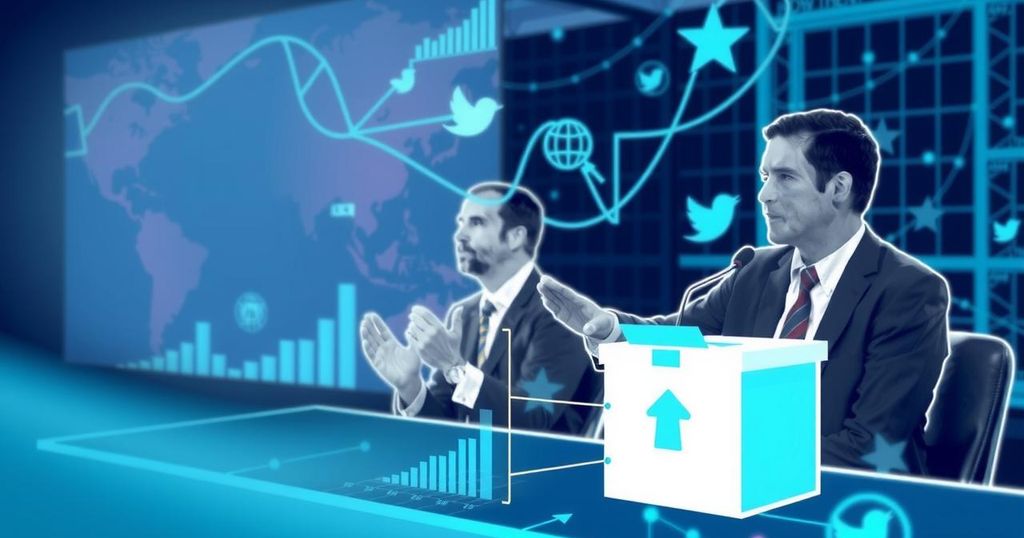At IGF 2024, experts emphasized the escalating challenges posed by misinformation and digital technologies to election integrity, particularly in a significant electoral year. Panelists discussed the global rise of disinformation and regional disparities affecting voter trust. They called for tailored strategies and multistakeholder accountability, highlighting the critical need for ongoing collaboration to safeguard democracy amid digital complexities.
In the context of increasing digital challenges, experts at the Internet Governance Forum (IGF) 2024 emphasized the perilous nature of misinformation and emerging technologies that threaten election integrity. Convened during a pivotal session titled “Internet Governance and Elections: Maximising the Potential for Trust and Addressing Risks,” participants discussed the implications of more than 65 elections set to take place this year, marking it as a particularly significant period for electoral integrity. The necessity for collaborative solutions across diverse sectors was a focal point, given the rising tensions surrounding misinformation and its proliferation.
UNESCO’s Tawfik Jelassi articulated a crucial observation regarding disinformation’s detrimental effects on trust and democracy, noting that “Without facts, there is no trust, and without trust, democracy falters.” He highlighted that misinformation propagates at a rate tenfold that of verified content, which complicates the public’s trust in electoral processes. Additionally, panelists underscored the manipulation of digital platforms by malicious actors leveraging technologies such as deepfakes to mislead voters, a reflection of the evolving tactics employed in misinformation campaigns.
Elizabeth Orembo of ICT Africa shed light on the unique challenges faced by the Global South, where substantial digital divides aggravate vulnerabilities to misinformation. She argued for the necessity of tailored strategies that consider local contexts, stating, “We cannot apply blanket policies from tech companies without addressing regional contexts.” This acknowledgment calls for a nuanced understanding of how misinformation operates across varying infrastructures and cultural landscapes.
Sezen Yesil from Meta discussed the company’s initiatives aimed at mitigating election-related threats, highlighting their commitment to enhancing platform accountability amid concerns over AI-driven disinformation. The anticipated influence of generative AI on the elections was assessed as relatively moderate; however, panellists unanimously advocated for stringent accountability measures for technology firms. Legal frameworks, such as the EU’s Digital Services Act, were noted as critical in addressing the digital harms posed by unchecked online activities.
The importance of a multistakeholder approach emerged robustly during discussions, with Rosemary Sinclair of AUDA asserting that reinforcing democracy requires a collective effort from all sectors. She described the IGF as an optimal venue for fostering cooperation among governments, civil society, academia, and the tech community. The dialogue underscored the imperative to maintain a continuous commitment to safeguarding election integrity beyond election periods, emphasizing the necessity for ongoing engagement from all stakeholders to build trust and mitigate digital inequities.
In conclusion, the IGF 2024 session illuminated the pressing challenges faced by election integrity in the digital realm, advocating for concerted actions to combat misinformation. The collaboration across sectors is deemed essential in creating resilient democratic frameworks, with eyes set on the importance of the IGF as a platform for ongoing global dialogue and solutions for the future.
The discussions at the Internet Governance Forum (IGF) 2024 centered on the critical intersection of election integrity and the rising prevalence of digital disinformation. As numerous elections occur globally in what is termed the ‘super election year,’ the panelists focused on strategies to uphold democracy in the face of misinformation and the manipulation of digital platforms. This year’s discussions come amid growing concerns over the impact of emerging technologies, particularly AI and deepfakes, which pose new threats to fair electoral processes. The need for multistakeholder collaboration and tailored approaches to regional challenges underscored the urgency of addressing these issues effectively.
The session at IGF 2024 underscored the complex challenges facing election integrity due to digital disinformation and emerging technologies. Key discussions highlighted the need for tailored strategies, collaborative efforts, and stronger accountability of tech companies. Participants reaffirmed that ensuring the integrity of elections in the digital age requires ongoing collective action that transcends election cycles. The IGF plays a vital role in facilitating dialogues that address these pressing issues and forms frameworks to protect democracy globally.
Original Source: dig.watch






